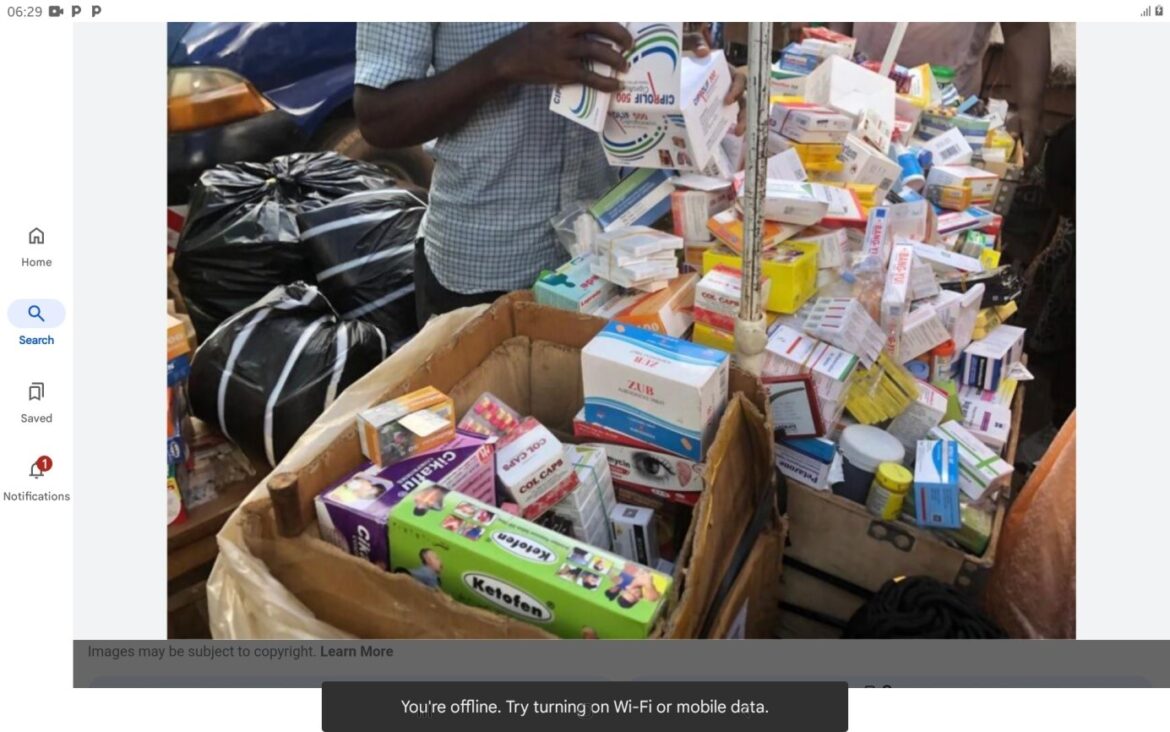The sale of illicit drugs on Yaounde’s streets continues to thrive, fuelling a persistent black market economy across the city. Despite being explicitly forbidden by Cameroonian law, these transactions are a daily occurrence, often taking place in plain sight.
Reporters witnessed a typical exchange at the Emmia roundabout, where a buyer openly sought medication for muscle cramps from a street vendor. The vendor, without hesitation, recommended a stronger, higher-dose drug, leading to a quick financial transaction. Such scenes are commonplace, with thousands of similar deals occurring daily.
Far from operating in the shadows, many vendors openly display their wares. In markets like Mokolo, some even have designated stands. However, they employ cunning strategies to evade municipal raids. Near the National School of Engineering, Polytechnic, an empty shelf full of drug boxes was observed outside a bar.
The vendor explained this as a tactic to avoid losing inventory during seizures. “When they come and seize our goods, they find empty boxes,” the retailer stated. “The boxes are there to signal to passers-by that we have drugs. When someone wants to buy, I go to the main store inside and give the drug to the person.”
A gendarme from the Melen gendarmerie confirmed that defence forces regularly conduct surprise operations to confiscate these illicit goods.
“Roadside drugs are dangerous and forbidden by the Cameroonian government,” he explained. “Only pharmacies are authorised to sell drugs. When we catch defaulters, we take away their merchandise.”
Cameroonian law (Article 53 of Law No. 90-035) strictly defines roadside drugs as those that do not adhere to proper production, distribution, and conservation standards. It explicitly prohibits the display or distribution of medication in public spaces, fairs, and markets by anyone, even licensed pharmacists. Despite these clear legal stipulations, a robust black market has flourished around this trade.
One anonymous vendor revealed that he sources his drugs from Mokolo and the Yaounde Central Market, where they are “affordable prices.” He admitted, “The business permits me to feed my family but I will not like any of my children to engage in this activity. It is tiring and nerve-cracking.”
He added that it is an open secret that these markets are major hubs for drug exchange, with products often originating from Nigeria, Chad, and Equatorial Guinea.
Opinions on the persistence of this illicit trade vary among pharmacists and the general public. Dr. Nga from the National Episcopal Conference of Cameroon suggested that some market vendors pay a “drug tax” to the government, and even when renting stalls, they specify their intent to sell drugs.
“Although the activity is illegal, as long as they can pay, they are given the authorisation to sell their products in the Market,” Dr. Nga explained. He also alleged that, “Some healthcare workers are involved in illegal drug businesses,” and that many officials turn a blind eye.
Dr. Mballa Msame, a doctor at the Health Social Welfare Centre of the University of Yaoundé I, Ngoa Ekelle, attributed some responsibility to the public, who continue to patronise these vendors, often out of ignorance regarding the dangers of improperly stored or unprescribed drugs.
“A drug has conservation rules,” Dr. Msame stressed. “When these drugs are exposed to the sun and rain, they become dangerous for public health. Moreover, these drugs are given without medical prescription.”
For many citizens, the primary appeal of roadside drugs is their low cost. Madam Ngoh, a civilian in Melen, stated, “I cannot buy drugs in pharmacy they are too expensive for the small amount of money I gain daily.”
By Bassong Anne Calixte (ASMAC Journalism Student on Internship)

